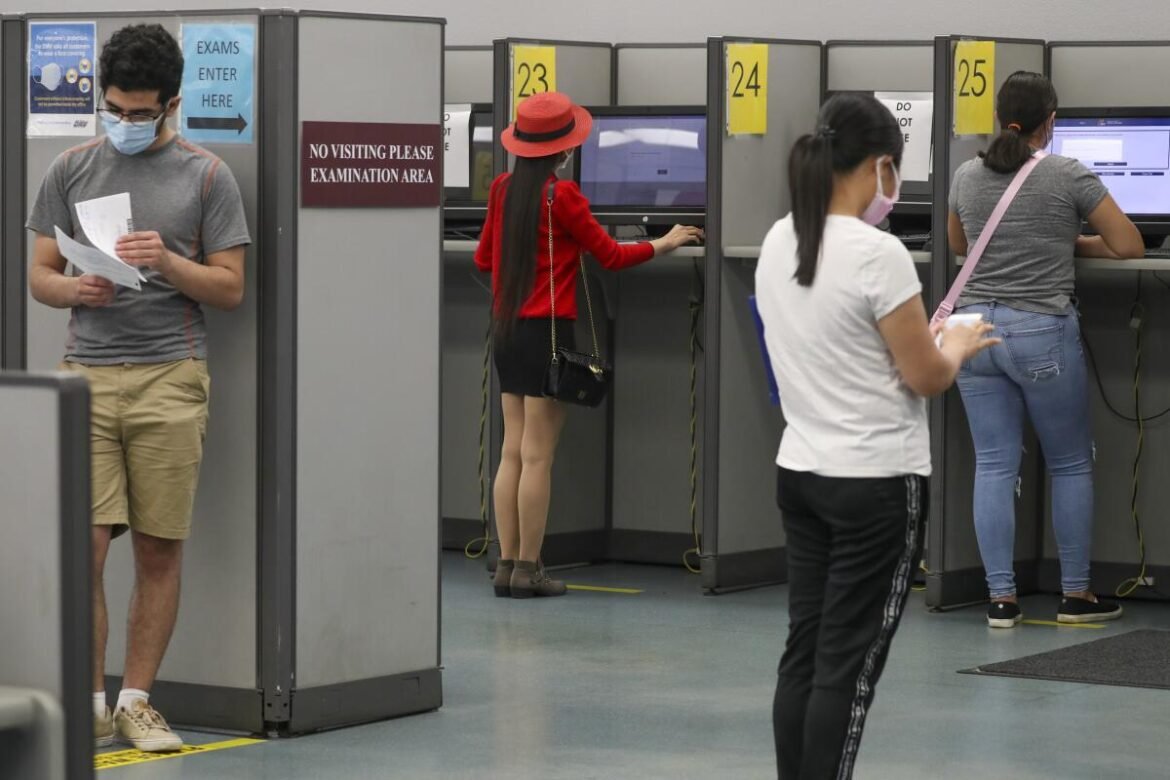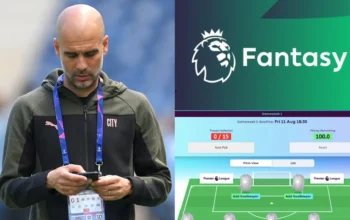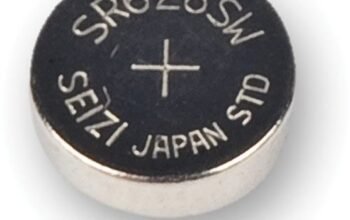Quick summary:
This article explains why cheating on any DMV exam (written, online, or road test) is far more dangerous than it looks. You’ll learn how DMVs detect cheating, the administrative and legal consequences you may face, real world examples of fraud schemes and prosecutions, what to do if accused, and honest alternatives to actually pass. I’ll back up the major claims with official guidance and recent reporting so you know these aren’t just scare stories agencies treat this seriously. (California DMV)
The simple truth:
Immediate test invalidation
If you’re caught cheating during a DMV exam, the first and most immediate outcome is automatic failure your test is invalidated on the spot. Whether it’s a written knowledge test, a computerized permit exam, or a practical driving test, staff are trained to stop the test and mark it as failed when they detect cheating behavior. That’s not opinion it’s routine administrative action. (California DMV)
Administrative penalties and the “fraud” label
Beyond the immediate fail, many DMVs treat cheating as “fraudulent activity.” That label matters: once an agency flags your record for fraud, you can face suspension of testing privileges, denial of applications, or a requirement to attend a formal administrative hearing before you can try again and those outcomes can last months or even a year. In several jurisdictions, a fraud finding can lead directly to revocation or a long-term block on obtaining a license. (California DMV Hearings)
How DMVs catch cheaters
In-person observations and staff training
Front-line DMV examiners and proctors are trained to watch for suspicious behavior: unusual eye movements, repeated glances at hidden devices, someone else taking the test, or mismatches between the person on file and who is sitting the test. A vigilant employee noticing someone disguised or behaving oddly has been the starting point of multiple fraud busts. Real examples show that it’s often a human noticing something off that triggers an investigation. (New York Post)
Camera, biometric and online-proctor checks
Many testing centers and online permit systems use camera verification, ID photo checks, and online proctoring to ensure the person taking the test matches the applicant. When online systems are used, agencies can compare the image captured during the test to the photo on file. Testing platforms can also freeze results, flag a test session, and require additional verification. States experimenting with or deploying identity checks are making it harder to cheat remotely. (Times Union)
Data cross-checks and suspicious patterns
DMV databases store test history, retake patterns, and applicant details. Large deviations (multiple rapid re-tests, identical wrong to right answer patterns across unrelated accounts, or unusual geographic patterns) can trigger automated flags and audits. When analyzing fraud rings, investigators often follow data trails payments, repeated use of the same proctor or tester, or identical forged documents. Those patterns are visible to investigators and have been central to prosecutions.
Legal consequences: fines, suspensions, criminal charges
Administrative consequences (suspension, denial, re-test bans)
Administrative punishments vary by state but commonly include test invalidation, temporary suspension of testing privileges, denial of a license application, and a block on re-testing for a specified period. Some states explicitly set one year suspensions or longer for fraudulent activity related to licensing. Administrative hearings are the venue DMVs use to adjudicate these matters; losing a hearing can extend penalties significantly. (dmv-defenders.com)
Criminal and civil exposure
In more serious cases particularly where fraud involves falsified documents, corrupt DMV employees, or organized schemes criminal charges can follow. These charges range from misdemeanors to felonies (e.g., record tampering, identity fraud, corruption). Convictions can carry fines, restitution, and even jail or prison time depending on the state laws and the scale of the deception. News reports of rings that used disguised testers or insider cooperation resulted in felony charges and lengthy sentences for organizers. That’s not hypothetical it’s happened. (New York Post)
Real world scams & schemes and how they unravel
Insider fraud and organized rings
Some fraud operations rely on corrupt insiders within licensing agencies or testing centers. For example, investigations have exposed cases where DMV staff manipulated records or allowed impostors to take tests for unqualified applicants. These schemes often survive only until one small slip-up or an observant coworker exposes the fraud. Once noticed, the data trails, payments, and forged documents typically make prosecution straightforward. (New York Post)
Paid-for fake licences and the scam ecosystem
Others promise to sell or “guarantee” a licence without testing a lucrative scam, particularly when wait times are long. These are often outright fraud: fake documents, counterfeit licences, or promises to submit false results to the licensing agency. Law enforcement and official agencies warn these are scams that can produce counterfeit documents, identity theft, and criminal liability for buyers sometimes punishable by severe penalties, including years in prison in the worst cases. (The Guardian)
Public safety stakes: why agencies are strict
License issuance isn’t just bureaucratic red tape it’s a public safety system. Licensing ensures drivers meet minimum knowledge and skills standards before operating vehicles that can kill or maim. When unqualified people obtain licenses through fraud, the result can be catastrophic on the road, especially with heavy vehicles like commercial trucks. Public safety is the core reason DMVs treat cheating as more than a failed test it’s a threat to everyone on the road. News coverage of crashes tied to unqualified drivers highlights the real-world consequences. (firstcoastnews.com)
Financial, career, and insurance fallout
Cheating’s cost isn’t just legal or administrative. If your fraudulent license enables driving and you’re later involved in an accident, insurance companies can refuse coverage for claims tied to unlicensed or fraudulently-licensed operation. Employers — especially in transportation sectors often run background and licensing checks; a fraud finding can cost you a job or prevent employment in fields that require clean, verified licenses. Scams that promise a quick licence often end with lost money, damaged records, and career setbacks. (The Guardian)
If you’re accused: immediate steps to take
Administrative hearings and appeals
If the DMV accuses you of cheating, you will usually receive notice of administrative action and in many states the right to a “fraudulent activity” hearing. Take that notice seriously and respond promptly. These hearings resemble mini-trials; you can present evidence, subpoena witnesses, and cross-examine the DMV’s witnesses. Representation by counsel or an experienced DMV hearing advocate can be valuable. (California DMV Hearings)
Evidence to collect
Collect everything: photos of the testing environment, copies of your application and identification, witness contact information, receipts for fees, and any record of communications. If you use an instructor, get written statements. If a device or accommodation is involved, collect medical or disability documentation upfront. The more documentary support you have, the stronger your position at the hearing. (California DMV Hearings)
Honest alternatives to cheating
Study strategies that actually work
- Use official DMV handbooks; they’re the canonical source.
- Do practice tests until you routinely score well above the pass threshold.
- Break study sessions into focused chunks (25 40 minute blocks) with review.
- Teach the material to someone else it’s one of the fastest ways to lock in knowledge.
Practice and preparation beat shortcuts. You’ll be safer behind the wheel and avoid the long-term risks of fraud.
Legitimate help: instructors, practice tests, accommodations
If language or accessibility is an issue, request official accommodations. Many DMVs provide translated materials, interpreters, or extra time for documented disabilities. Taking lessons with a certified instructor not only prepares you for the test but builds real driving skills employers and insurers value — and it’s legal. Don’t fall for people who promise a guaranteed licence in exchange for money; that’s a red flag for fraud. (utahboi.provexam.com)
Practical tips to avoid being falsely accused
- Make sure your ID photo and records match the person who will test.
- Arrive with proper ID and documentation; mismatches invite scrutiny.
- If you need help during testing, ask proctors for allowed accommodations rather than surreptitious assistance.
- Don’t share account credentials with others or hire people to take your test; it’s often the trail that names you later.
Being proactive and transparent prevents both mistakes and suspicion.
Myths about “getting away with it” busted
- Myth: “I’ll just use a phone hidden and be careful.” Reality: cameras, proctors, and pattern-analysis catch hidden devices more often than you think. (utahboi.provexam.com)
- Myth: “If a friend takes the test for me, it’s fine.” Reality: impersonation is a criminal act and often detected by ID checks or post-test audits. (New York Post)
- Myth: “Paying someone inside solves the problem.” Reality: insider schemes are prosecuted harshly and risk serious prison time for both parties.
tightening the net
Longer wait times, online testing, and higher demand sometimes tempt people toward shortcuts and fraudsters exploit that. Agencies have responded by increasing identity verification, using camera/photo matching, freezing suspicious test results, and pursuing criminal referrals when organized fraud is suspected. Recent reporting and enforcement actions show a trend: both administrative and criminal enforcement are ramping up to protect public safety and the integrity of licensing systems.
Conclusion:
Cheating at the DMV is more than a one-time fail it’s a pathway to administrative headaches, legal exposure, financial loss, and damaged employment prospects. Agencies are investing in detection and enforcement because fraud has real safety consequences on roads. The sensible play: prepare, use legal accommodations if needed, and avoid offers that look too good to be true. The cost of a few hours of honest study is tiny compared to the long-term fallout of being caught. (California DMV)
FAQs
Q1: If I’m caught cheating, will I go to jail?
A1: Often the first result is administrative (test invalidation, suspension of testing privileges). Jail or prison is reserved for more serious frauds — especially where documents were falsified, large sums were exchanged, or insiders were involved. Recent prosecutions of organized schemes have led to felony charges and significant sentences in some cases. (New York Post)
Q2: Can the DMV suspend my existing license if they find I cheated when applying?
A2: Yes. If the agency finds fraudulent activity tied to your license application, they can suspend, deny, or revoke privileges and sometimes retroactively challenge a previously issued credential. Administrative hearings decide many of these cases. (dmv-defenders.com)
Q3: What if someone else took my test for me?
A3: That’s impersonation and a serious offense. DMVs use ID checks, photos, and audits; impersonation often leads to criminal charges for both the impersonator and the person who arranged it. It’s one of the quickest ways to escalate from a simple fail to a felony-level matter. (New York Post)
Q4: Are there legitimate ways to get help if my first language isn’t English?
A4: Yes. Many DMVs offer translated study materials, interpreters, or testing accommodations for documented needs. Always request official accommodations rather than turning to illicit shortcuts.
Q5: what should I do?
A5: Respond to official notices quickly and collect all evidence of the transaction (receipts, messages). Consider legal advice and be prepared for an administrative hearing. Reporting the scam to law enforcement and the licensing agency may help your case and aids investigations into the scam operation.
Final note
Cheating looks like an easy shortcut only until it becomes the longest, costliest mistake of your life. Study, prepare, and use legitimate channels it’s safer, cheaper, and keeps your record clean.



